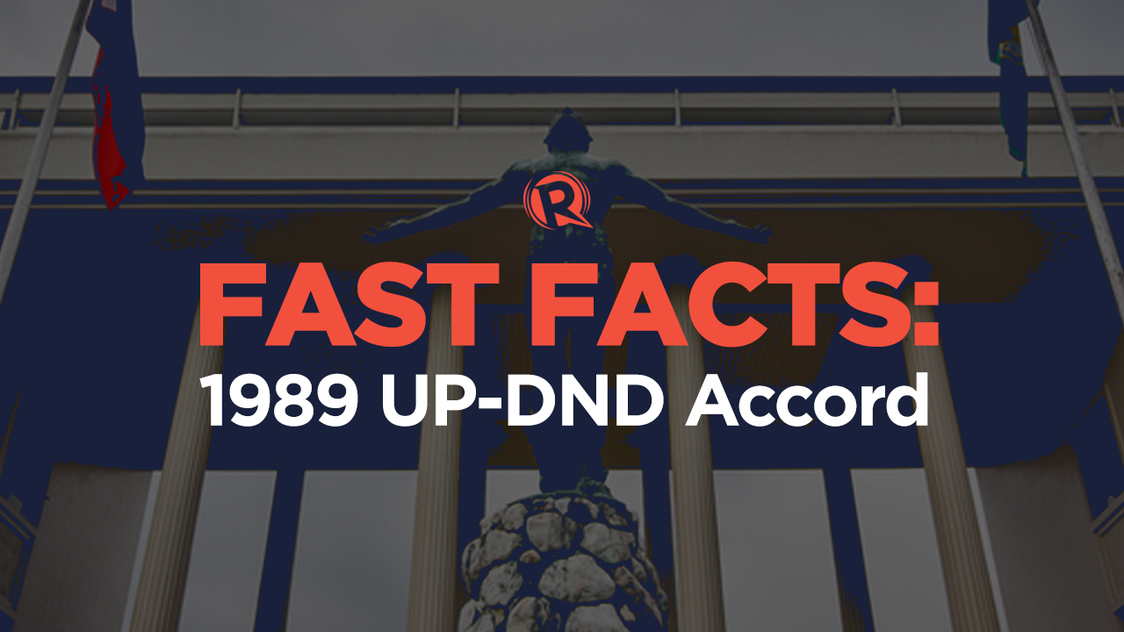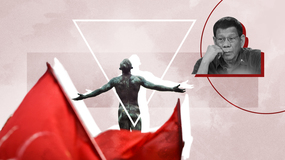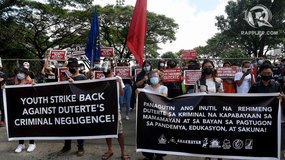
From the Website of Rappler
links: https://www.rappler.com/newsbreak/iq/things-to-know-1989-up-dnd-accord
Duterte gov’t ends 1989 deal barring troops from UP
----------------------------------
Legal expert Tony La Viña says the Department of National Defense has 'no right to unilaterally terminate the agreement' as the deal did not provide for an exit clause
In the Duterte government's latest crackdown against dissent, the Department of National Defense (DND) unilaterally terminated the 1989 University of the Philippines (UP)-DND accord that prevented state forces from entering any of its campuses.
The termination was made public on Monday night, January 18. But Defense Secretary Delfin Lorenzana officially notified the university about the abrogation in his letter to UP President Danilo Concepcion on January 15, citing reported baseless in-campus recruitment activities of the Communist Party of the Philippines and the New People's Army (CPP-NPA).
Lorenzana said that the agreement was a "hindrance in providing effective security, safety, and welfare of the students, faculty, and employees of UP."
According to the defense chief, he ended the deal on his "own volition" and not because President Rodrigo Duterte instructed him to.
Prior to this, Duterte himself had branded UP as a recruitment ground for the CPP-NPA. He even threatened to defund the country's premier university in November 2020 for supposedly calling for a nationwide academic strike against the administration's negligence in responding to recent typhoons and the pandemic. It was students from the Ateneo de Manila University who did so.
The UP-DND accord was an agreement signed on June 30, 1989 by then-UP president Jose Abueva and then-defense chief Fidel V. Ramos. The agreement laid down the guidelines on military and police operations inside the university.
Bagong Alyansang Makabayan (BAYAN) Secretary General Renato Reyes Jr told Rappler Monday night that the agreement succeeded the 1982 Soto-Enrile accord, which was "borne out of the struggle against the Marcos dictatorship."
The Soto-Enrile accord was signed between student leader Sonia Soto and then-defense minister Juan Ponce Enrile to protect students from the police and military presence in schools intended to suppress dissent and protest actions.
Reyes said the case of Donato Continente, a staffer of the UP campus publication Philippine Collegian arrested on June 19, 1989 by the military and police at Vinzons Hall, set a precedent for the UP-DND accord that was signed two weeks later.
Continente was convicted in the April 1989 assassination of US army Colonel James Nicholas Rowe in Quezon City. He was meted life imprisonment but the Supreme Court reduced his sentence to 14 years after ruling that he was only an accomplice. Continente maintained his innocence upon his release in 2005 and said he was tortured to admit to a crime he did not commit.
The principal suspect, Juanito Itaas, was arrested in Davao City in August 1989. He too said he was tortured into admitting to the crime.
Reyes said the deal was signed so that the Continente incident would not happen again.
What's inside the deal?
Prior notification shall be given to the UP administration by the military or police before they could conduct any operations inside the UP campuses.
Except in "cases of hot pursuit and similar occasions of emergency," no military or police shall enter the premises of the UP campuses.
When the UP administration asks for security assistance from the troops, only uniformed personnel of the military and police can enter the campus premises.
Members of the military and police "shall not interfere with peaceful protest actions" by the UP community in their campus.
The service of search warrants to any UP student, faculty, employee, or invited participant in any UP activity shall as far as predictable be done after prior notification to the UP President, or Chancellor of the campus, or the Dean of the regional unit.
The arrest or detention of any student, faculty, or employee anywhere in the Philippines, shall be reported immediately to the UP administration. No members of the UP community shall be subjected to custodial investigation without prior notice of the university administration.
A joint monitoring group composed of the UP Faculty Regent, UP Student Regent, UP administration officials, and officials from the military and police shall meet twice a year to determine compliance [with] the agreement.
Nothing in the agreement "shall be construed as a prohibition against the enforcement of the laws of the land."
Below is the copy of the agreement:
'No legal basis' to terminate deal
Legal expert Tony La Viña said that this latest development is "but a part of the government’s long-standing crusade to silence anyone who is opposed to its views."
The UP campuses have been a refuge for student activism since the 1980s – a result of a long history of student disappearances, killings, and police and military violence within the vicinity of the campuses.
La Viña said that the defense department had "no right to unilaterally terminate the agreement."
"The 1989 accord did not provide for an exit clause. As such, both parties should agree to terminate this mutual pact," La Viña explained.
He added that Lorenzana's letter just "red-tagged students who are fearlessly standing up for what they believe in. There is no legal basis to terminate the 1989 accord."
According to La Viña, the agreement was based on UP’s academic freedom, enshrined not just in its Charter, but also in the 1987 Philippine Constitution.
"The DND has failed to show any overriding public interest to interfere with UP’s academic freedom. It did not show any clear and present danger which can limit a student or a professor’s civil liberty," he said.
Meanwhile, Reyes said that the termination of the deal has implications on youth activism in the country.
Rappler Website
links:
OTHER HUMAN RIGHTS PROMOTIONS WEBSITES
PROTECTION AND PROMOTION OF HUMAN RIGHTS
-----------------------------------------------------------------------------------------------
------------------------------------------------------------
-----------------------------





























































0 comments:
Post a Comment